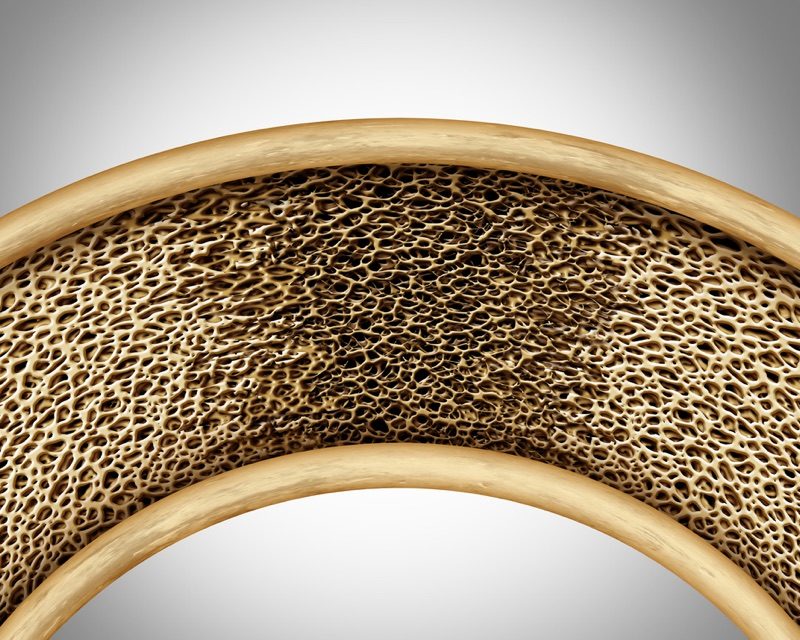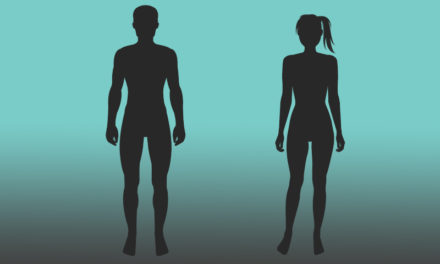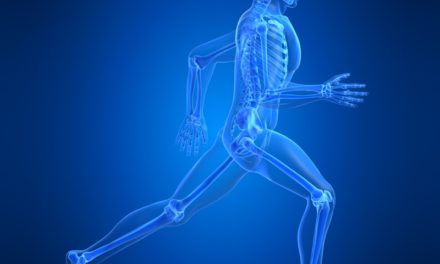Not much thought is given to bones or laws…until we break one! That is the way God intended it to be. The Creator gave man an endo-skeleton [one on the inside] for a purpose. Bones, though extremely important, are to be well-covered, unseen, unnoticed. Laws also were not intended to be prominent.
When God wrote the Ten Commandments on tables of stone with His finger, one might guess that He would have them prominently placed somewhere in the camp of the Israelites, so they could see them daily. No no! Instead He had them enclosed in a special golden box in a special room in a special building in a highly secured area that few could access.
Those same laws He says He will write on us as well, if we are willing. Where? Tattoo them on our hands or somewhere where we or others can see them easily? No.
Heb 8:10 For this is the covenant that I will make with the house of Israel after those days, saith the Lord; I will put my laws into their mind, and write them in their hearts: and I will be to them a God, and they shall be to me a people:
However, out of sight is not to mean out of mind. God has been pleased to give us abundant information on bones and laws and their part in the body–how they are made, how they are organized, their various purposes, under what conditions they apply, how they interrelate, and the consequences for ignoring or breaking them.
We will address some of these, beginning in this chapter with how they are made.
THE “THING” IN SOMETHING
Nearly everything, large or small, tangible or intangible, physical or spiritual, is made up of something else. We call such things “compositions“. Music is called a “composition” because it is made up of notes and rests, with various instructions as to intensity, etc. A writing or essay or poem is also referred to as a “composition” since its work is to arrange various facts and/or thoughts into a logical order. “Composure” (from the same root as composition) refers to a settled state of mind, a mind that has everything in place; it does not refer to a mind void of thought, feeling, or intelligence. As I said, almost all things, large or small, tangible or intangible, physical or spiritual, are made up of something else.
Law also is a composition. For many years that thought never occurred to me. I just assumed law was some mysterious force that surrounded different aspects of God’s creation. If I “flowed” with it things would go okay. If I disregarded it something bad would happen. It wasn’t until I studied the bones did I realize that law, like everything else, was composed of other things (in fact very special materials)!
Composition often determines value.
The story is told of a woman, one August morning, who happened by a pile of rubbish and noticed an old tarnished metal teapot. Thinking it could be cleaned up and used as a decorative flowerpot, she picked it off the pile and took it home. For months not much was done with the discarded relic until one bright spring day, while looking for a container to hold some new flowers, the woman found the tarnished old teapot on a shelf in the garage. While casually scrubbing the old pot with an SOS pad, she turned it over to clean the bottom and noticed some writing. To her utter surprise she found that it was a very valuable antique. How she handled it afterward was much different!
Some of our carelessness with God’s law is due to our ignorance of its value. Perhaps a closer look will help that.
A SINGULAR SUBSTANCE…
Early in the Scriptural record we read about a time when God fed His people with manna. This substance sustained the Israelites on a daily basis for forty years. Manna was unique. Though it was always the same consistency and color, it could be made into a variety of dishes. It depended mostly on the creativity of the cook. In more recent times we have seen all the different things that could be made from a simple peanut or soybean: paints, fabrics, inks, plastics, oils, and foods of all textures, colors, and flavors—to mention a few.
The body also has a singular substance used in a variety of ways, an organic1 tissue used everywhere: in the ears, blood vessels, skin, bones, intestines. Sometimes this tissue is firm and rigid. Other times it is flexible and stretchable. And in special places it is even made into soft durable cushions.
If a person were stripped of all but this tissue, he would be eerily similar to his former self. The skin would be gone, as would the muscles. Also gone would be the nerves and nerve tissue that control thoughts and movements. But the basic body shape would be little changed. This most abundant tissue used for the foundation and framework of our bodies is called connective tissue.
Loose connective tissue forms the delicate, thin membranes throughout the body. It binds the skin to the underlying organs and fills spaces between muscles. Adipose connective tissue serves as a protective cushion for organs and joints, and functions as a heat insulator beneath the skin. Our special interest in this tissue, however, is because it is one of the two major components of bone. Without it, bone becomes weak, vulnerable, undependable, and brittle.
This most valuable material is a counterpart of something in the spiritual body, and is one of the first things to help us better appreciate God’s law.
In the human framework connective tissue binds structures together, supports, protects, fills empty spaces, cushions, insulates, produces blood, and serves as frameworks. What, in God’s spiritual body, binds us to one another, supports us when we are weak, protects us when in danger? What fills our emptiness and cushions the blows of life and insulates us from the coldness of others? What provides the atonement for our failures? What is the basis for the framework of God’s law? And what has as its origin the living God, the Saviour of the world? There is only one thing that does all this, divine love. It is God’s love that actually gives “shape” to our character!
But because love is a very broad subject and the basis for many things, God illustrates it different ways in the body. The aspect of love we are considering is its supportive nature. In the same way that connective tissue provides the living matrix for bone, it is God’s supportive love which is the foundation for law . Note how love is associated with law:
Romans 13:10 love is the fulfilling of the law. [Love appears to be part of law.]
Galatians 5:22-23 but the fruit of the spirit is love…, against such there is no law. [Love isn’t defined by law]
I John 5:2 for this is the love of God, that we keep his commandments. [God’s love leads us to an appreciation of and respect for His laws.]
Our concern in this chapter is how connective tissue is associated with bone and how love is related to law. When we are looking for counterparts we are looking for things that have similar characteristics, even though they are entirely different in makeup, appearance, or function. If the defining characteristics are similar the possibility of a match is good. But counterparts are more than matching up similarities. It’s sort of like finding a life mate. Just because a young man and woman share similar interests is not the signal to announce a wedding. Divine matchmaking here is serious business for the union is for life. Divorce is not an option for God does not make mistakes. To be sure of a match we must test it and try it. When the interchange between both sides is seamless, meaning we can toggle back and forth between the two without a hitch, we can then be pretty certain we have a match. However, as with human couples, there are individual differences that must be respected. Counterparts are not twins. They are two separate and distinct individuals divinely designed to work together, each bringing into the mix their unique contributions. This is what makes counterpart learning so powerful. The total is always greater than the sum of their parts. So we will be thinking out loud as we pursue this challenge.
As stated above, nearly everything is made of something else. Connective tissue is composed predominately of two substances, collagen and elastin.
COLLAGEN
Collagen is everywhere in our body, surrounding tissues and organs as atmosphere envelops a forest. In fact, it is the major structural protein of the body. This white organic substance, like superfine threads in appearance, is used to form the more rigid and supportive parts of the body, like those found in cartilage, leather, blood vessels, and bone. Its structural characteristics are:
* organic
* very strong
* flexible
* only slightly elastic
* occurs in bundles
When we look in the spiritual body to find its equivalent we must look for something that comes from a living source (organic), is used predominately for building up the body of Christ, is strong and firm, with some flexibility and only slightly elastic. Finally, its counterpart must be plentiful, renewable, and ongoing and an aspect of God’s unfathomable love.
The longer this list gets the fewer choices we have to make a match.
So far, only one thing fits these criteria, God’s GRACE.
Organic? It comes directly from God, the Author of life.
Is it used for growth and strengthening God’s people? Most assuredly!
II Pet.3:18 But grow in grace and in the knowledge of our Lord and Savior Jesus Christ.
Is it plentiful, renewable, and ongoing? There is an endless supply.
IICor.12:9 And he said unto me, My grace is sufficient for thee.
Is it strong and firm, with little give?
But you have a work to do to control the tongue. It is a little member and boasteth great things, but it needs the bridle of grace and the bit of self-control to keep it from running at random. 2T 316 (note: a leather bridle and bit are made up mostly of collagen).
Grace is an attribute of God shown to undeserving human beings. It is need, not worthiness, that determines its distribution.
We would never have learned the meaning of this word ‘grace’ had we not fallen. God loves the sinless angels who do His service and are obedient to all His commands, but He does not give them grace. These heavenly beings know naught of grace; they have never needed it, for they have never sinned. ML 100
Is organ, tissue, or cell “worthiness” a triggering factor for the body’s production and distribution of collagen? Is the brain or heart more worthy than, say, the fingernail or ear? No. Even in the body “need” (not worthiness) is the cause for manufacturing and distribution! So it seems we may have a match.
To broaden our perspective let’s look at some dictionary applications of grace.
-
The free unmerited love and favor of God, the spring and source of all the benefits men receive from him (Rom 11:6)
-
Divine influence in renewing the heart and restraining (protecting) from sin (2 Cor 12:9)
-
Spiritual instruction, improvement and edification (Eph 4:29)
-
Favor; good will; kindness; disposition to oblige another
-
Pardon
-
Privilege
-
Elegance and beauty of movement or expression
-
A sense of propriety and consideration for others
-
Time allowed for someone to honor an obligation, pay a debt, etc.
-
Make more attractive by adding ornament, colour, etc.
-
Be beautiful to look at
GRACE AND LAW
As we can see, grace has many applications in the body of Christ (His church). Counterpart teaching suggests that one of those applications of grace is in the formation of law. Do we not see this element predominant in traffic laws (see #8 above), or fair trade laws in business, or even in managing a work crew (with respect of authority)?
Because bone is composed mostly of collagen, the skeletal system underscores the fact that law would be composed mostly of grace, that its purpose for existence is to benefit those under its influence. Collagen suggests the purpose of this unmerited favor is to teach, direct, and protect. Remove grace from law and you have a government mortally weakened, whose rulers are despots, and whose only options for control are force and brutality. Remove collagen from the skeletal system and bone has lost its strength and resilience and protective nature.
Law is just one expression (or doctrine2) of grace. Grace does not come from law, nor law from grace, but law has much grace in it. If grace, then, is closely associated with law, would grace encourage us to sin (break the law) if we were living under grace? This is as ridiculous as saying the presence of collagen makes bones easily broken!
Romans 6:14,15 What then? shall we sin, because we are not under the law, but under grace? God forbid!
God’s grace and the law are in perfect harmony; they walk hand in hand. My Life Today, p100
THE OTHER ORGANIC FACTOR
Now we are going to switch rails for a few moments and see what the physical can teach us about the spiritual. This is the power of learning through counterparts—being able to switch back and forth gives credence to both sides.
God foresaw that grace alone would not be sufficient for His law to fully benefit erring mortals, so He added another divine factor. This is described in the second organic constituent of connective tissue– the yellowish superfine fibers of ELASTIN. This substance originates from the same living substance as collagen, but its features are a little different.
* less tensile strength than collagen
* flexible
* very elastic
* single fibers that branch to form networks
Its unique feature is its stretchability. The golden fibers can elongate up to 1 1/2 times their original length and still return to their former size like a rubber band. This is what makes youthful skin snap back into place when pinched. The skin that remains uncovered, however, and exposed to sunlight, will eventually lose its flexibility, and in time may sag and wrinkle.
STRETCHABILITY: (1) able to endure strain; (2) the ability for something to be extended beyond its normal limits without damage; (3) able, when forces are acting upon it, to reach dimensions greater than when not thus acted upon.
However, we know that the law cannot be “stretched”. What the law says it means. Where it is it stays. What it promises it does. Because of this would we expect to find elastin in osseous tissue? The truth is, it isn’t there! Even this detail the Creator did not miss!
Though elastin is not used to make bone, it is extremely useful in holding the bones together at the joints and in attaching them to muscles. We call such tissues ligaments and tendons. They are extremely important in the skeletal system and in our understanding of law. As with collagen, elastin has its counterpart in the spiritual body. There we call it MERCY.
It has a living Source.
I John 4:19, R.V. The heart of man is by nature cold and dark and unloving; whenever one manifests a spirit of mercy and forgiveness, he does it not by himself, but through the influence of the divine Spirit moving upon his heart. “We love because He first loved us.”
God is Himself the source of all mercy. . . . He does not treat us according to our desert. He does not ask us if we are worthy of His love, but He pours upon us the riches of His love, to make us worthy. He is not vindictive. He seeks not to punish, but to redeem. MB 21-2
Its branching aspect shows how mercy is extended throughout the body. We receive according to how we impart to others.
Our Saviour taught His disciples to pray: ‘Forgive us our debts, as we forgive our debtors.’ A great blessing is here asked upon conditions. We ask that the mercy of God toward us may be measured by the mercy which we extend to others. Christ declares that this is the rule by which the Lord will deal with us... 5T 170 [see also Matt. 18:23-35]
Its stretchable feature characterizes long-suffering and forgiveness. But even a rubber band has its limit!
The mercy of God is shown in His long forbearance. He is holding back His judgments, waiting for the message of warning to be sounded to all. 9T 97
The flames that consumed the cities of the plain shed their warning light down to our time. We are taught the fearful and solemn lesson that while God’s mercy bears long with the transgressor, there is a limit beyond which men may not go on in sin. PP 162
The skeletal system instructs us that mercy is not a function of law but an action on it. Elastin is not in bone but attached to it. Notice how this is underscored in the quote below.
The law of God, enshrined within the ark [in the sanctuary], was the great rule of righteousness and judgment. That law pronounced death upon the transgressor; but above the law was the mercy seat, upon which the presence of God was revealed, and from which, by virtue of the atonement, pardon was granted to the repentant sinner. Thus in the work of Christ for our redemption, symbolized by the sanctuary service, ‘mercy and truth are met together; righteousness and peace have kissed each other.’ Psalm 85:10. PP 349
The response to sunlight is also significant. Direct sunlight breaks down elastin. (If you are 40 or older, look at the parts of your body that always remain out of direct sunlight, and compare their elasticity with those parts that are always exposed. Depending on your age, you will likely notice a lot more wrinkles in the latter parts.) God intended for our skin to remain youthful and supple, but to do so it must be covered. Christians understand that in order for them to maintain the elasticity of spiritual youthfulness, they must ever be clothed with the garments of righteousness3. If we are not thus covered we soon become selfish and self-centered and lose the sweet influences of mercy towards others.
[Further discussion on collagen and elastin in the skeletal system and their spiritual equivalents is found elsewhere as we consider in more detail ligaments and tendons.]
MINERAL SALTS
All connective tissue has some flexibility. The hardness factor in bone is due to the mineral salts embedded in the slightly flexible fibers. These salts are inorganic4. Though they may be part of a life form, the minerals themselves are nonliving. These salts are laid down within the fabric of the bone as minute crystals. Their source is the earth.
If connective tissue answers to LOVE, what do mineral salts answer to? Let’s consider this subject in the Bible.
Luke 14:34-35 Salt is good: but if salt have lost his savor, wherewith shall it be seasoned? It is neither fit for the land, nor yet for the dunghill; but men cast it out. He that hath ears to hear, let him hear.
We in the United States have a difficult time understanding how salt can lose its savor or be good for the soil or compost pile. We are familiar only with the highly refined table salt we call sodium chloride (NaCl). Saltiness is a natural characteristic of NaCl. It cannot be removed. We also know that NaCl sterilizes whatever soil it is mixed with (even dunghills!). The solution to our difficulty is in the fact that savor and saltiness are not synonyms!
In Poland, the acclaimed salt capital of the world, salt is used as it is mined directly from the earth. The Polish people call it “black salt”. To us it appears dirty, for it is more like an ore than the purified version we know today. The moderate use of this kind of salt, health practitioners say, does not have the harmful effects on body or land as the Americanized table salt does. This crude form is the “salt of the earth” Scriptures speak of (Matthew 5:13). It is this form that is pronounced good for the body.
The minerals that are naturally combined with the NaCl make the latter beneficial and thus give salt its saltness (ability to be safely used to preserve, enhance, or purify). It is reported that people on salt restricted diets can moderately use earth (or rock) salt in its cruder form, or Celtic Sea Salt. When NaCl is removed from the influence of its surrounding minerals, it becomes harmful both to body and land (as does most everything else that is refined).
KNOWLEDGE
In Paul’s discourse to the Colossians salt was used as a metaphor for knowledge.
Colossians 4:6 Let your speech be always with grace, seasoned with salt, that you may know how you ought to answer every man.
The Scriptures say without savor salt is good for nothing. Savor, then, makes something useful. If salt must have its savor to be useful, we can expect knowledge also to have a savor, something associated with it to make it beneficial.
II Corinthians 2:14 Now thanks be unto God, which always causeth us to triumph in Christ, and maketh manifest the savor of his knowledge by us in every place.
It is very important to remember that knowledge alone will not correctly describe the purpose of minerals in the bone. Knowledge must be connected to something else. When it is it is very effective in providing the strength needed. What is this additional element that is so important?
The savor of the salt represents the vital power of the Christian–the love of Jesus Christ in the heart, the righteousness of Christ pervading the life. MB 36
Notice it is the savor that does the representing, not the salt! Savor, in this instance, is the living element, the love of Christ expressed in kindness, compassion, forgiveness, sympathy, understanding, and joy. Savor is what gives the power; it is not in a display of knowledge or reciting large portions of scripture. Sometimes we think that a knowledge of Christ or the gospel is all that is needed to reform the life. Not so! We must allow the love of Christ to take control of our heart in order for the knowledge to have any benefit for others or ourselves.
James 2:19 Thou believest that there is one god; thou doest well: the devils also believe, and tremble.
With knowledge comes responsibility, and with responsibility comes effort, and with effort comes the need for power. Savor, a willingness to let God’s love shine out from us to others, provides that power. What a merciful God we have! With every new grasp of truth comes (in Christ) the power to obey. This makes God’s law palatable and enjoyable!
Psalm 1:2 But his delight is in the law of the Lord; and in his law doth he meditate day and night.
Now let’s put this into perspective.
DUTY
Duty is composed of two things: knowledge and the ability to act on that knowledge (savor). Duty, then, is our response to truth. Knowledge alone is not enough. In the context of law, truth (with its savor) makes duty known. We, then, must act on what we have learned.
John 13:17 If ye know these things, happy are ye if ye do them.
Mineral salts add strength and firmness to bone when embedded in strands of connective tissue; so duty, performed in the context of God’s love, gives strength and firmness to the law.
DUTY AND LOVE
Remember that Duty has a twin sister, Love; these united can accomplish almost everything, but separated, neither is capable of good. 4T 62
Love and duty are separate. Let’s look more closely at Love’s twin. Duty’s characteristics are the same as the salt of the earth: inorganic, miniscule, and earthy.
INORGANIC:
Duty, like the minerals that represent it, is inorganic It is not dependent on a living body for existence. It does not require another person to make duty known to us. Mere awareness of truth is all that is necessary to make duty known, and God’s grace is always present to help us perform the duty.
No man is a proper judge of another man’s duty. TM 348
Do not depend on any erring man to define your duty. 9T 279
If we cannot rely on people to tell us what to do and when to do it, what can we rely on?
Our circumstances and surroundings, the changes daily transpiring around us, and the written word of God which discerns and proves all things–these are sufficient to teach us our duty and just what we ought to do, day by day. 3T 333
MINISCULE: tiny, small, almost unnoticed. The salts in bone are microscopic crystals carefully placed by bone-forming osteoblasts. And it is the little, tiny, almost unnoticed duties, faithfully performed, that help build a strong character.
Many of the little home duties are overlooked as of no consequence; but if the small things are neglected, the larger duties will be also. You want to be whole men and women, with pure, sound, noble characters. Begin the work at home; take up the little duties and do them with thoroughness and exactness. When the Lord sees you are faithful in that which is least, He will entrust you with larger responsibilities. Be careful how you build, and what kind of material you put into the building. The characters you are now forming will be lasting as eternity. AH 297
EARTHY: of or like the earth; natural. Truth makes known our duty to God and man, but all that we are required to do is confined to this earth: our family, neighbor, teacher, employer, government, the outcast, homeless, orphan. Even when we wish to do something directly for God, who is in heaven, He tells us:
Matthew 25:40 Verily I say unto you, inasmuch as ye have done it into one of the least of these my brethren, ye have done it unto me.
So both bone and law have two parts–one that originates from a living organism, and the other that is not dependent on a life form for its existence. In bone they are called connective tissues and mineral salts. In law they are called love and duty.
Love has a twin sister, which is duty. Love and duty stand side by side. Love exercised while duty is neglected will make children headstrong, willful, perverse, selfish, and disobedient. If stern duty is left to stand alone without love to soften and win, it will have a similar result. Duty and love must be blended in order that children may be properly disciplined. 3T 195
ORDER OF DEVELOPMENT
When our bones are starting to form, the organic part is first laid down. Then in this living matrix osteoblasts (bone cells) appear which deposit calcium and phosphorus salts into the organic fibers. This adds strength and firmness to the collagenous cords.
Take a chicken bone and soak it in vinegar for several days. The acid medium of the vinegar will dissolve the calcium salts in the bone, leaving it very flexible. You can even tie the bone in a knot! Such a bone is almost pure collagen–yielding, bendable–, hardly what you would expect to keep you upright and tall!
It would behoove us to follow God’s order when it comes to teaching others about His law. Let us first lay an environment of love and caring before we “hit them with the truth”! Someone has said, “I don’t care how much you know until I know how much you care.”
I Corinthians 13:4-7 Charity suffereth long, and is kind; charity envieth not; charity vaunteth not itself, is not puffed up, doth not behave itself unseemly, seekth not her own, is not easily provoked, thinketh no evil, rejoiceth not in iniquity, but rejoiceth in the truth, beareth all things, believeth all things, hopeth all things, endureth all things.
Remember that 4T 62 (quoted above) states that Duty has no value outside of love. Let’s always remember to emphasize the unmerited, undeserved grace of God, the divine savor, whenever truth is presented. And once that is done, in the spirit of Christ, the truths themselves will make duty known to the hearer. God’s word will not return unto Him fruitless!
Isaiah 55:11 So shall my word be that goeth forth out of my mouth: it shall not return unto me void, but it shall accomplish that which I please, and it shall prosper in the thing whereunto I sent it.
SUMMARY
As we combine the lessons of the physical and spiritual counterparts, we see a beautiful and logical explanation of how law and love are to be expressed.
God’s supportive love is the first ingredient of law, and provides the resilience and flexibility needed for endurance. Duty rises out of this environment and adds strength and firmness as it is performed. To have one without the other would weaken God’s precepts, our understanding of the Gospel of the kingdom, and our effectiveness in service.
1 “organic” means the substance comes from a living source.
2 DA 24 “For in every doctrine of grace. . . we see ‘God with us.'”
3 Revelation 3:18
4 inorganic: not dependent on a living form for its existence.






